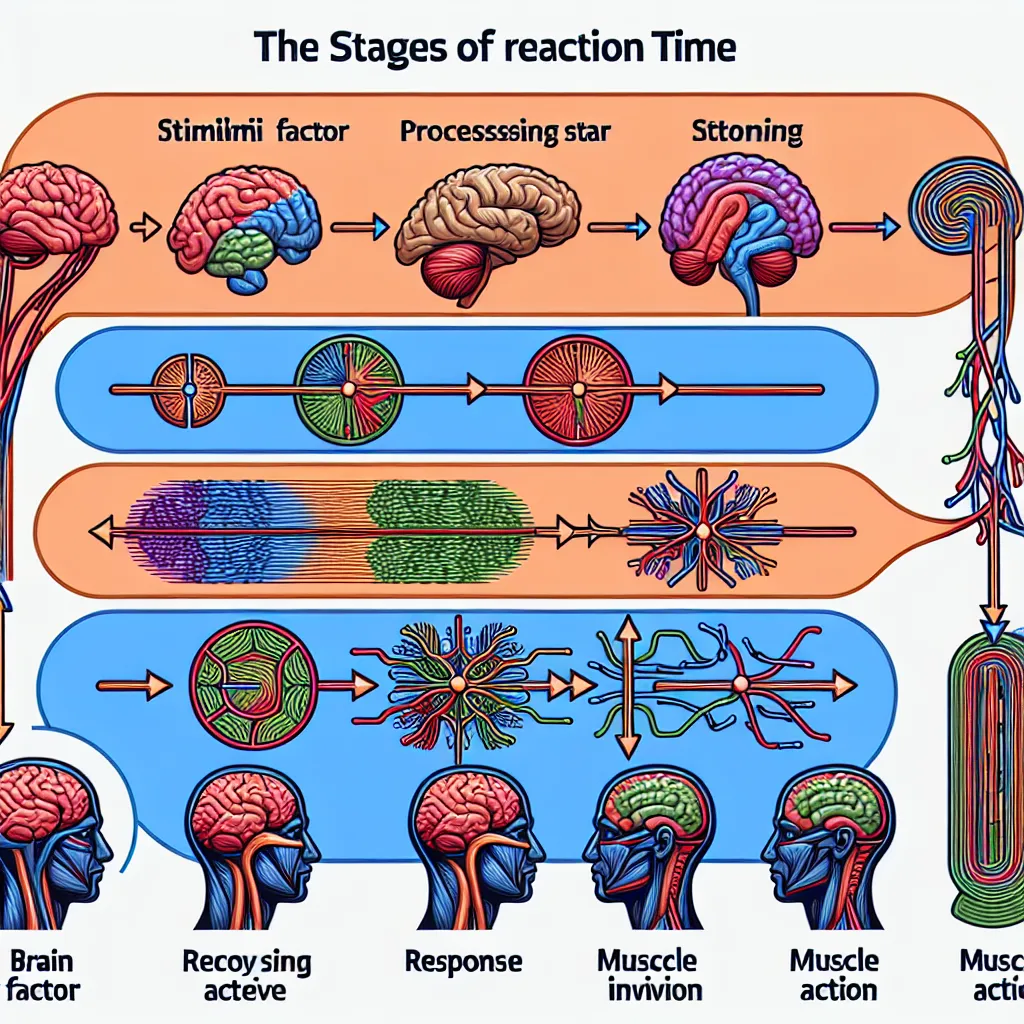Reaction time is a crucial factor in many aspects of our lives, including sports, driving, and even in language proficiency tests like IELTS. In this article, we’ll explore the concept of reaction time, its importance in the IELTS speaking test, and provide strategies to improve your quick-thinking abilities for better performance.
Understanding Reaction Time
Reaction time refers to the interval between the presentation of a stimulus and the initiation of a response. In the context of IELTS speaking, it’s the time taken to process a question and begin formulating an answer.
Definition and Phonetics
- Reaction time (noun): /riˈækʃən taɪm/
The time taken for a person to respond to a stimulus or situation.
Examples in Context
Let’s look at some examples of how reaction time is used in everyday language:
-
The athlete’s quick reaction time gave her an advantage in the race.
In this sentence, “reaction time” refers to the speed at which the athlete responds to the starting gun. -
Drivers with good reaction times are more likely to avoid accidents on the road.
Here, “reaction times” indicates the speed at which drivers can respond to sudden changes in traffic conditions. -
The IELTS examiner was impressed by the candidate’s short reaction time to complex questions.
This example directly relates reaction time to performance in the IELTS speaking test. -
Video games can help improve your reaction time and hand-eye coordination.
This sentence suggests that certain activities can enhance one’s reaction time. -
In emergency situations, a quick reaction time can be the difference between life and death.
This example emphasizes the critical nature of fast reactions in high-stakes scenarios.

Reaction Time in IELTS Speaking
In the IELTS speaking test, your reaction time plays a significant role in how you’re perceived by the examiner. A quick, confident response can contribute to a higher score, particularly in the areas of fluency and coherence.
Frequency in IELTS
While “reaction time” itself may not be a frequently used term in IELTS, the concept is crucial across all sections of the speaking test:
- Part 1: Short question-and-answer session
- Part 2: Individual long turn
- Part 3: Two-way discussion
A quick reaction time is particularly important in Part 1 and Part 3, where you need to respond promptly to the examiner’s questions.
Improving Your Reaction Time for IELTS Speaking
1. Practice Active Listening
Active listening involves fully concentrating on the speaker and processing the information quickly. This skill can significantly reduce your reaction time in the IELTS speaking test.
Exercise: Listen to IELTS practice questions and try to begin your response within 2-3 seconds of hearing the question.
2. Expand Your Vocabulary
A rich vocabulary allows you to access appropriate words quickly, reducing the time needed to formulate responses.
Synonyms for quick reaction:
- Swift response /swɪft rɪˈspɒns/
- Prompt reply /prɒmpt rɪˈplaɪ/
- Rapid reaction /ˈræpɪd riˈækʃən/
Antonyms:
- Delayed response /dɪˈleɪd rɪˈspɒns/
- Slow reaction /sləʊ riˈækʃən/
3. Use Filler Phrases Strategically
While it’s best to avoid overuse of fillers, strategic use can buy you a few seconds to organize your thoughts without awkward silences.
Examples:
- “That’s an interesting question…”
- “Let me think about that for a moment…”
- “Well, in my opinion…”
4. Develop a Mental Framework
Having a mental structure for common question types can help you respond more quickly.
For opinion questions:
- State your opinion
- Provide a reason
- Give an example
5. Regular Timed Practice
Set a timer and practice answering IELTS-style questions within a specific timeframe. Gradually reduce the time allowed to improve your reaction speed.
Memory Techniques for Quick Recall
Mind Mapping
Create mind maps linking common IELTS topics with relevant vocabulary and ideas. This visual representation can speed up your thought process during the test.
Storytelling Method
Associate new vocabulary or expressions with personal anecdotes. This emotional connection can lead to faster recall during the speaking test.
Practical Exercises to Enhance Reaction Time
-
Word Association Game: Set a timer for one minute and write down as many words as you can associate with a given IELTS topic.
-
Rapid Fire Questions: Have a study partner ask you a series of questions on various topics, aiming to answer each within 5 seconds.
-
Topic Card Challenge: Draw a random IELTS topic card and speak about it for one minute without preparation.
-
Interruption Drill: Practice speaking on a topic while a partner interrupts with related questions. This improves your ability to think on your feet.
-
Video Response: Record yourself answering IELTS questions and analyze your reaction time and response quality.
Conclusion
Improving your reaction time is a valuable skill not just for the IELTS speaking test, but for effective communication in general. By implementing these strategies and consistently practicing, you can significantly enhance your ability to think and respond quickly under pressure.
Remember, the goal is not just speed, but also accuracy and coherence in your responses. Balance quick reactions with well-thought-out answers for the best results in your IELTS speaking test.
We encourage you to start practicing these techniques today. Share your experiences and any additional tips you discover in the comments below. How has working on your reaction time improved your confidence in speaking English?
For more IELTS preparation tips, check out our articles on reaction drills and how to describe a time you felt very happy in IELTS speaking.